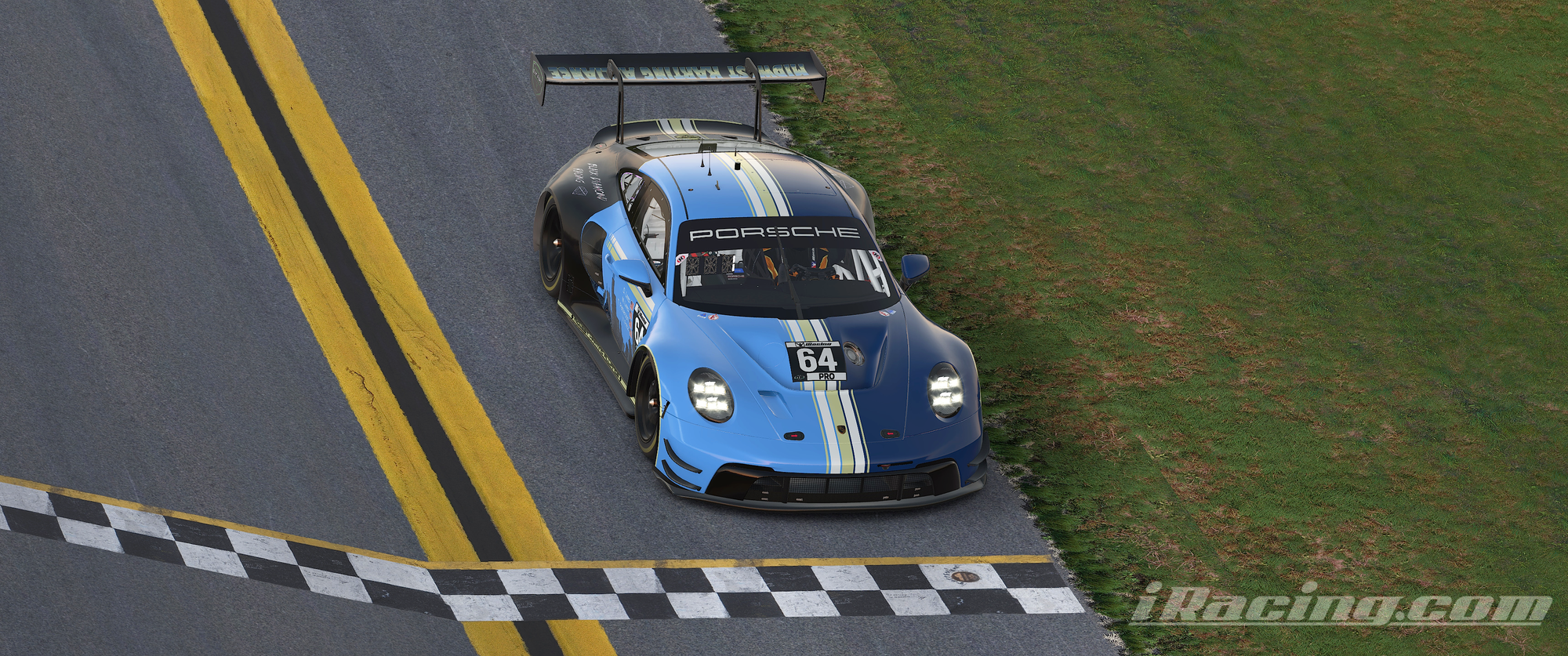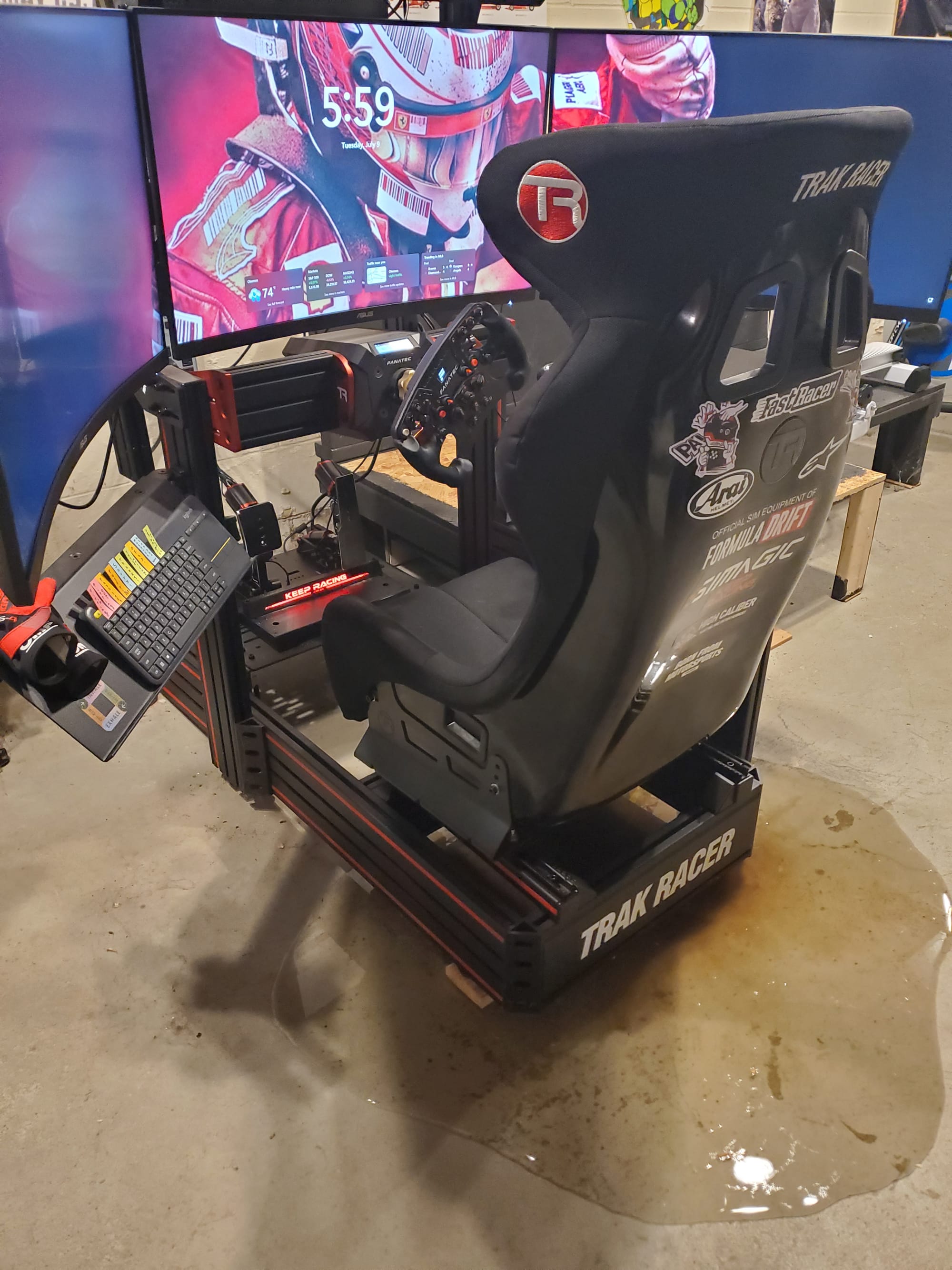The Endurance Mindset
Minimizing incidents, keeping tires alive, and staying focused and alert over long stints are all part of the most important two things in an endurance race: consistency and persistence.

I had some other ideas in the queue before this one, but somehow – as I began writing this post in mid-November of 2024 – I hadn't managed to get my thoughts together on those topics well enough to work on them.
I've written about lessons I've learned from racing before, but at that time I'd done relatively little endurance racing. I'd done my first two events, but most of my racing was still electric carts or online sprint races.
Endurance races have some unique aspects, which are part of why I'm so fond of them. They're long; unlike a sprint race, which can be very short, you're looking at multiple hours (three to six for the shorter ones, and
as many as twenty-four) of racing, in a team who are all working together driving the same car, and that changes the mindset considerably. I've found that the team aspect of endurance racing feels analogous to some of my favorite aspects of theater work, especially tech week with a tight knit crew: you're pulling long hours and fixing things and strategizing on the fly, but there's camaraderie and you're all working towards one goal. But in this post I'm mostly talking about the mindset.

In a really long race, it's almost inevitable that your team will run into some sort of trouble, and that you or someone else will damage the car at least once or twice. This is frustrating and upsetting when it happens and can be difficult to get past (especially if you happen to be the one who binned it), but – although it's easier said than done – if everyone keeps their heads down and gets on with it successfully a good result can often still be had. And it certainly won't be if you give up. If you spin out from P1 four hours into a twenty-four hour race and get back out in P11 and two laps down, it's entirely possible that if your team keeps it clean for the rest of the race you'll find yourself back up at the front by the last hour.
Minimizing incidents, keeping tires alive, and staying focused and alert over long stints are all part of the most important two things in an endurance race: consistency and persistence.
This wasn't an easy mindset for me to acquire. I tend to get frustrated and angry with myself if I make a mistake, and my instinct is to go as fast as possible all the time and internally beat myself up about it if I don't feel I'm fast enough. But, in adddition to not being mentally great, that can lead to overdriving the car, making mistakes, and ruining the tires. During practice for my first iRacing 8 Hours of Fuji I actually fully destroyed a tire, which was the turning point where I realized I needed to find a gentler and more consistent pace. Getting frustrated after making a mistake or angry after an incident only makes matters worse, and can never help. Obviously I do get annoyed, but I've worked hard at letting that go or channeling it in reasonable ways if I can't.

Since managing to get into that mindset for endurance races, I've realized that it's also better than my usual impatient mindset for many other endeavours as well. Rushing to finish a script or a novel or a piece of art as quickly as I can and getting upset at myself if it's not as good as I think it should be also does no good, especially since all of those things can benefit from carefully laying the groundwork before beginning. Keeping a consistent pace rather than rushing if I'm not meeting the (often arbitrary) deadline that I've set for myself is counterproductive. I make more mistakes, and I'm less happy with the quality in the end.
I'm working to applying this to life in general. Experiencing setbacks, especially major, scary setbacks, is unpleasant and it's easy for me to spiral into negativity and start thinking I'll never manage to accomplish the things that I've wanted to accomplish. It's useful to remember that I can keep working on things, little
by little, even if I'm not able to put as much time or energy into them as I'd like, and also that just keeping going is critical. Consistency and persistence are important in life as well.
For example, I've now finally completed the script for my next comic, and can now move on to laying the groundwork in other ways (getting the website site set, finishing my character reference sheets, beginning pencilling) – but this is after scrapping two previous ideas and re-writing this script entirely. I'm happy with where it is now, but if I'd given up after writing the first version or plunged on ahead with it anyway I wouldn't be.

